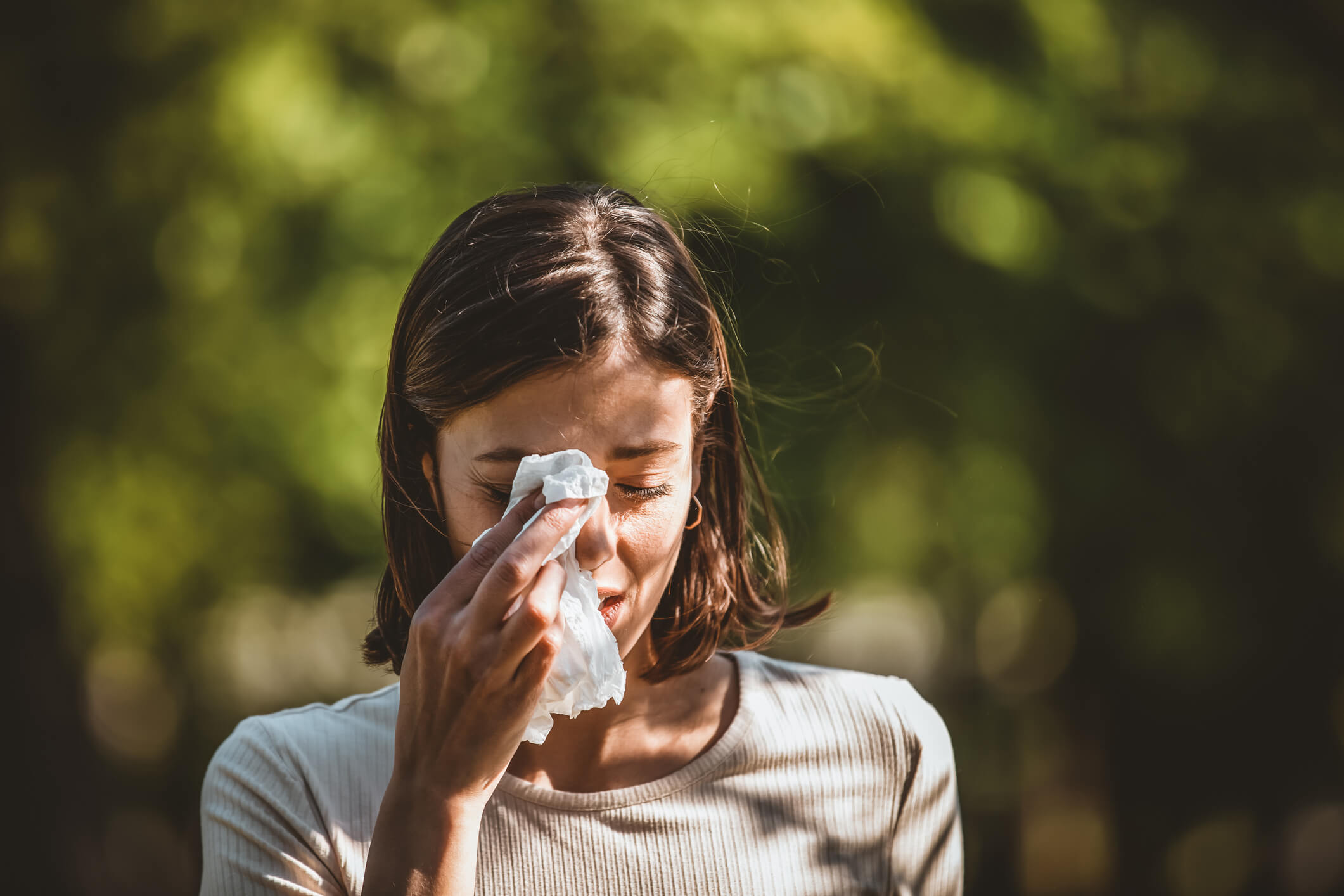Advice
20 May 2022
Advice
20 May 2022

With spring finally here, we’re all thrilled to enjoy the brighter and warmer days. But for millions of people, the change of season also brings the discomfort of seasonal allergies.
From runny nose and sneezing to itchiness, the symptoms and intensity of seasonal allergies vary. But what about your eyes? After all, they are particularly affected by redness, stinging, swelling, and tears.
Don’t worry: the situation isn’t hopeless. Eye care professionals always look for the latest innovations to help people who suffer from seasonal allergies. How do these allergies affect the eyes? What solutions are there to relieve the symptoms throughout the season? Let Eye Am Soins Oculaires tell you more about it.
All year round, your body is exposed to countless allergens, like dust or pet dander. As the weather warms up and nature awakens, plants, trees, and ragweed release pollen into the air. Your body comes into contact with new allergens, so your immune system goes into defensive mode by producing antibodies. Such protection is provided by histamine—a compound derived from the amino acid histidine—which acts as a shield against allergens. This compound causes different reactions affecting the eyes. Depending on how your body reacts to allergens, you may experience eye symptoms such as redness, itching, burning, blurred vision, or watery eyes.
Allergy season is far from pleasant. The eye naturally produces tears that act as a protective and antiseptic barrier. As a result, the eyes remain moist and are protected from external irritants. But during allergy season, the eyes are stressed. Allergens combined with other pollutants contribute to a decrease in tear production, causing dry eyes.
It’s important to note that dry eyes can have many causes. An appointment with a professional is the best option to properly assess the type and severity of the problem. Discover our complete evaluation program.
Other symptoms of seasonal allergies include discomfort while wearing contact lenses. Since allergens stick to the surface of the lenses, the eyes are in direct contact with the source of the symptoms. Obviously, there are accessible and effective solutions to relieve seasonal allergy symptoms.
Seasonal allergies are unpleasant. But there are some things you can do to feel better.
First, it’s important to have good hygiene habits and take the time to properly clean your contact lenses. Better yet, consider wearing daily disposable lenses, rather than biweekly or monthly lenses. This can help reduce the buildup of allergens in your eyes.
Next, carry artificial tears or moisturizing drops specifically designed for seasonal allergies. It’s a convenient and affordable solution to help relieve discomfort on high pollen count days.
Eye Am also offers a groundbreaking innovation: the new drug-releasing contact lenses ACUVUE® Theravision® (corresponding blog article in FR only). They allow people living with seasonal allergies to regain a level of comfort without compromising their vision.
As in many other areas, prevention is also part of the solution. First, it’s important to minimize contact with allergens. For example, when the pollen count is high, you might want to stay indoors or close your windows. Using cold water compresses to soothe the itching and not rubbing your eyes are also good ideas to help relieve symptoms.
Creating a hygiene routine is very effective during allergy season. Eyelashes and eyelids play an important role in protecting the eyes. They prevent dust and allergens from coming into contact with the surface of the eye. Properly cleaning the area around your eyes can be soothing and reduce symptoms of seasonal allergies.
Artificial tears or moisturizing drops can also provide relief.
Using antihistamines will certainly relieve the symptoms. But they affect the regulation of ocular fluid secretion and the composition of the tear film. They could trigger dry eye symptoms.
If symptoms persist or worsen, book an appointment with your optometrist. A professional eye examination will identify signs of allergy and dry eyes, if any. It can also rule out other causes of eye irritation or infection such as styes, chalazion or conjunctivitis.
Make an appointment with one of our optometrists for an assessment of your eyes.